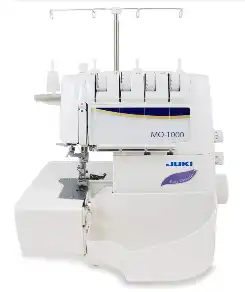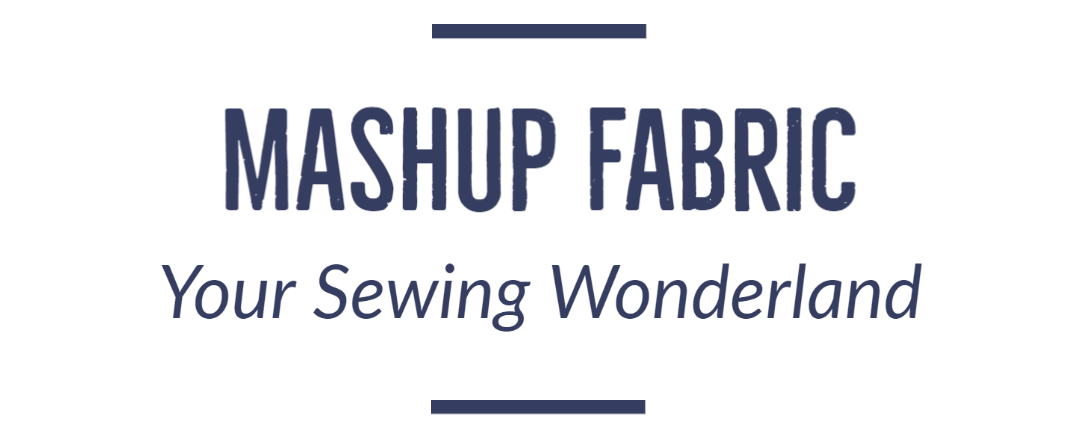Best Juki sergers are some of the top options when it comes to serger sewing machines. Juki has built a strong reputation over decades for their high-quality and technologically advanced sergers.
When you choose a Juki serger machine, you know you are getting an exceptionally durable and reliable product. Juki was the first to develop innovative features like the automatic thread trimmer and auto-threader.
They are constantly improving their serger models and adding user-friendly features like air threading and needle threading to simplify the threading process.
Juki’s extensive experience and consistent innovation make their sergers popular choices for both professional and home sewers. Whether you are looking for a basic starter serger or a full-featured professional model, Juki’s lineup has an option to suit your needs and budget.
Their sergers allow sewers to easily achieve professional-looking finished seams and hems.
Overview of Juki Sergers
Juki offers an extensive lineup of sergers to meet the needs of home sewers as well as industrial applications. Their serger models range from affordable basic machines up to advanced professional models packed with features. This section will provide an overview of the Juki serger line and highlight the capabilities of their most popular models.
Juki first began producing sewing machines in 1945 and has grown into one of the leading manufacturers worldwide. While they make industrial machines, Juki has a strong reputation for their home sewing and sergers specifically.
Some highlights of Juki sergers include:
- Powerful motors up to 1,500 stitches per minute
- Automatic features like air threading and needle threading
- User-friendly operation and setup
- Advanced models with expanding stitch options
- Professional-quality construction for durability
- Innovative features like automatic rolled hemming
Juki frequently introduces new serger models with updated features and technology. They aim to make their sergers accessible and easy to use for home sewers while still offering advanced options for experienced users.
Popular Juki Serger Models
Juki’s serger lineup has models suited for beginners up through professional sewers and garment manufacturing. Here are some of their most popular models:
- Juki MO654DE – Lightweight and portable
- Juki MO-1000 – Professional with advanced features
- Juki MO-623 – Budget-friendly but powerful
- Juki MO644D – Great for beginners but also versatile
- Juki MO-50eN – Affordable basic model ( Read Juki MO-50EN Sewing Machine Review)
Key Juki Serger Features:
| Feature | Description |
|---|---|
| Air threading | Automatically threads loopers |
| Rolled hems | Creates narrow rolled hems |
| Coverstitch | Special stitch with top and bottom threads |
| 2/3/4 threads | Number of threads machine can use |
| Adjustable settings | For stitch length, width, tension and feed |
| Automatic threading | Easy needle threading |
| Lightweight | For portability around 15 lbs |
| High speed | Up to 1500 stitches per minute |
With innovative features pioneered by Juki, their sergers aim to make finishing edges and seams an easy and quick process. They offer precision stitching for professional results. Many sewers love Juki sergers due to their reputation for reliability and longevity even after years of regular use.
Whether you’re looking for a starter serger or ready to invest in a full-featured professional model, Juki’s lineup has a model sure to fit your needs. Keep reading for detailed reviews of their top sergers to help you decide!
Factors to Consider When Buying a Juki Serger
There are several key factors to consider when buying a Juki serger to ensure you select the right model for your needs. Taking the time to evaluate these factors will help you end up with a Juki serger you’ll be happy with for years to come.
Price Range
Juki sergers range from around $400 on the low end up to $2000+ for the top of the line models. Considering your budget will quickly narrow down the options. Here are price ranges for Juki sergers:
- Under $500 – Basic models good for beginners
- $500-$1000 – Mid-range with more features
- $1000-$1500 – Advanced home models with more options
- $1500+ – Heavy duty professional models
Sewing Experience Level
Your current sewing skill level is important for choosing user-friendly features.
- Beginner – Opt for easy threading, automatic features
- Intermediate – Will use more capabilities and settings
- Expert – Needs performance for intricate projects
Frequency of Use
How often you plan to use the serger also affects the right choice.
- Rarely – Basic model will suffice
- Weekly – Mid-range model with useful features
- Daily – Invest in a heavy duty professional model
Types of Fabrics Sewn
Consider what fabrics you plan to serge to ensure the machine can handle them.
- Lightweight – Any basic model will work
- Medium weight – Look for 2-3 thread capability
- Heavy thick fabrics – Require a strong motor and knives
Stitch Types Needed
Different models offer different numbers of stitches.
- 2-3 stitches – Suitable for most basic serging
- 2-3-4 stitches – Needed for 4-thread overlock stitch
- Coverstitch – For professional hemming
Portability Needs
If you’ll be transporting your serger, weight is an important factor.
- Stationary – Heavyweight is fine
- Portable – Consider a lighter weight model
Juki Serger Features Based on Sewing Factors:
| Feature | Best For |
|---|---|
| 2/3 threads | Lightweight fabrics |
| 2/3/4 threads | Medium to heavy fabrics |
| Coverstitch | Advanced hemming |
| Easy threading | Beginners |
| Adjustable settings | Intermediates/experts |
| Heavy-duty motor | Frequent use, thick fabrics |
| Lightweight | Portability |
Taking the time to carefully assess your needs based on these key factors will ensure you select the perfect Juki serger model for your sewing requirements. With the right match, you’ll enjoy your new Juki serger for many projects to come!
Reviews of Top 5 Juki Serger Models
This section will provide in-depth reviews of the top Juki serger models to highlight the key features and performance of each machine.
Juki MO654DE
The Juki MO654DE is one of Juki’s most popular home sergers due to its balance of user-friendly operation and advanced features.
Overview of Features:
- 2/3/4 thread capability
- Automatic rolled hemming
- Color-coded threading
- Adjustable stitch length up to 4mm
- Up to 1500 stitches per minute
- Weighs only 15.4 lbs for portability
Pros:
- Very easy to thread
- Compact and portable
- Professional quality results
- Affordable price point
- Versatile stitch options
- Reliable performance even at high speeds
Cons:
- Limited workspace size
- Needle can be tricky to thread manually
- No coverstitch capability
Best Uses:
- Basic serging needs
- Home sewing projects
- Garment construction
- Travel machine
- Beginner/intermediate sewers
Read: Juki MO654DE Review: Elevate Your Serger Game
Juki MO-1000
The Juki MO-1000 is built for advanced sewers and frequent use.

Overview of Features:
- Industrial quality construction
- Up to 1500 stitches per minute
- 2/3/4 thread serging
- Automatic rolled hemming
- Automatic thread trimmer
- Presser foot pressure adjustment
- Upper knife for thick fabrics
Pros:
- Very fast and powerful
- Heavy duty – can sew thicker fabrics
- Professional results
- Useful convenience features
- Reliable and durable
Cons:
- Higher price point
- Heavier than portable models
- Limited automatic threading
Best Uses:
- Advanced sewers/garment construction
- Heavy usage
- Thick/difficult fabrics
- Those wanting maximum features
Read: Juki MO-1000 Serger Review: Is This The Perfect Serger For Beginners?
Juki MO-623
The Juki MO-623 delivers professional serging at a budget-friendly price.
Overview of Features:
- 2/3 thread serging
- Up to 1500 stitches per minute
- Color-coded threading
- Adjustable stitch length
- Automatic rolled hemming
- Weighs 15 lbs – fairly portable
Pros:
- Budget friendly price
- Very easy to thread
- Straightforward operation
- Quality serging up to 1500 spm
- Nice variety of built-in stitches
Cons:
- No specialty presser feet included
- No automatic needle threading
- Limited to 2/3 threads
Best Uses:
- Beginner and intermediate sewers
- Basic serging needs
- Home decor projects
- Garment construction
- Travel machine
This overview of features, pros and cons, and ideal uses provides an in-depth look at Juki’s most popular sergers. Be sure to evaluate your needs and sewing style to determine which Juki model is the best fit for your projects!
Additional Tips for Using Juki Sergers
To get the most out of your Juki serger, following some key tips on machine setup, operation, and care will help keep your machine running smoothly for years. This section provides additional tips for using Juki sergers to their full potential.
Thread Selection
Choosing quality thread designed for serging is important to get the best results from your Juki.
- Use lightweight serger thread instead of standard sewing thread
- Polyester or poly/cotton blend serger threads work best
- Match thread weight to fabric weight
- Use thread specifically made for serging from quality brands
- Avoid cheap poor quality thread that can cause issues
- Stick to the same brand/type for all threads for consistency
Cleaning and Maintenance
Regular cleaning and oiling will keep your Juki serger working like new.
- Clean lint and threads after each use
- Oil following manual guidelines every 6-12 months
- Replace needles regularly before they get dull
- Inspect cutters for nicks and replace as needed
- Keep free of dust and debris near working parts
- Cover when not in use to avoid exposure to dirt and moisture
Accessories for Optimizing Use
Certain accessories can enhance your serging experience.
- Serger tweezers help grip threads for threading
- Specialty serger presser feet add stitch options
- Coverstitch attachments open up hemming abilities
- Extension table provides more workspace
- Thread stand keeps threads feeding smoothly
- Fabric cutter for trimming seam allowances
Tips for Easing Operation
- Use color coded thread guides for easy threading
- Adjust individual tensions until balanced stitch forms
- Check manual for proper threading order
- Clean cutters regularly for smooth fabric trimming
- Change needles every 4-6 hours of serging time
- Go slow on first pass with new fabric type
Investing a little time into properly caring for your Juki will ensure it continues operating at peak performance. Follow these tips to get the most out of your Juki serger!
Conclusion
Juki sergers offer home and professional sewers versatile, high-quality machines for finishing edges and seams with ease. This guide has provided an overview of popular Juki serger models and their key features. Factors like your sewing experience level, project needs, and budget should be evaluated to select the best Juki serger for your needs.
The MO654DE is a great choice for beginners and basic serging with its lightweight portable design. The MO-1000 is built for advanced sewers needing maximum durability and features. The budget-friendly MO-623 still delivers professional results.
For those needing specialty stitches, some models also offer coverstitch capabilities. With proper care and maintenance, a Juki serger should deliver reliable performance for many years.
If producing professional-quality garments and seams is your goal, a Juki serger has the features and reliability to make it achievable.
